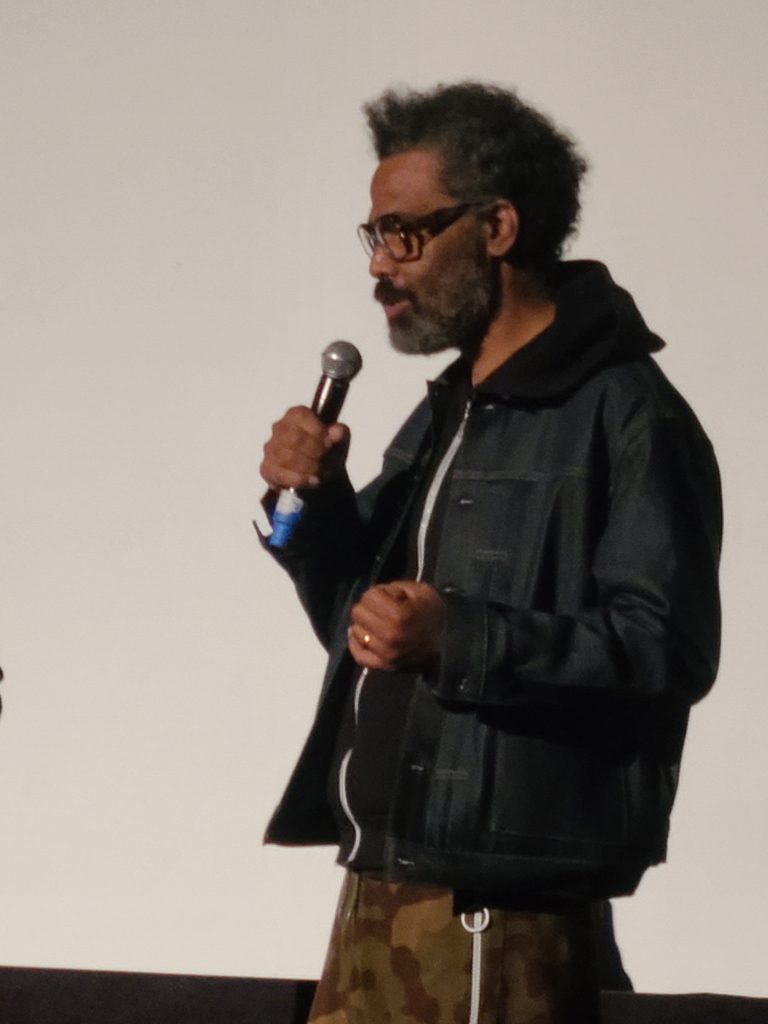Louis Armstrong’s Black & Blues: Perspectives from Filmmaker Sacha Jenkins
Louis Armstrong’s Black & Blues, the documentary film from director Sacha Jenkins, made its world premiere at the Toronto International Film Festival, September 18, 18, 2022. Louis Armstrong kept meticulous records of his own life, including audio diaries that reveal the personal side of a public entertainer. Filmmaker Sacha Jenkins combines those archival recordings with footage of Armstrong taken during his career performances and private moments at home. The material takes viewers back in time, presenting Armstrong in the setting of the era in which he lived and worked as one of the greatest jazz performers of all time.
Classic Couple attended the TIFF world premiere and captured perspectives from Sacha Jenkins on the project. Louis Armstrong’s Black & Blues will be available on Apple TV October 28, 2022.
Asked what brought him to do this film, Sacha Jenkins told the audience:

With my grandparents, I remember Louis Armstrong being something that was really prevalent in their household in Philadelphia. When I got the call from Imagine Entertainment, to consider the gig I started doing the research and I was blown away by who this guy really was. It was interesting for me.
To understand the music, you’ve got to understand what inspired it, what created it. I feel like if you understand who the man was, what he went through, what he overcame, what inspired him, who has influenced his work, why he did what he did—to me, that’s step one to getting super close to understanding. So that was the goal.
You can do 10 hours on Louis Armstrong and I completely agree. We tried to do the best we could, painting a picture of who this guy was within the amount of time that we had.
Asked about the access he had to Louis Armstrong’s audio and wealth of archives, Sacha Jenkins replied:
Mr. Armstrong sits in his home where he was having candid conversations with friends and family and he left all of his possessions to the State of New York. He was forward thinking. You hear him at the end of the film saying, “This is my life.” I feel like he co-directed the film; literally he knew that it was important for people to understand this story. So, we had access to amazing things. He was a human being, a real person, who wound up inspiring millions of people, but let us learn about who he was first. That to me was the whole essence of what we’ve tried to do.
Asked about Louis Armstrong’s ability to break the color barrier and play for audiences of both Black and white people—and his role in the civil rights movement, Sacha Jenkins shared:
Well, if you go way back to his childhood, he said that he played with all kinds of kids, right? That speaks to the diversity that was New Orleans. They played cowboys and Indians and they were quote unquote, “the Indians,” right? But regardless, there was a relationship. He actually knew white people. There was a Jewish family that he had a relationship with, and it was a positive relationship. So, he had an early education on how diverse the world actually is.
This guy said, “Okay, fancy white hotel you want me to play here? I’m not going to play here unless I can stay here.” It was an awful conflict, but you have to really meet people where they are in life. When the activism was happening, he’s in his 50s and 60s, and he’s like, if I get hit in my mouth that’s it for me. So, he contributed cash to the movement. It’s just a reality of life and where we are as people and what happens as we age. Our priorities change and, how long can you put your life on the line? These are all these things that weren’t considered when Sammy Davis Jr. of all people copped out against Louis Armstrong not speaking up against the trouble down south. Just like crabs in a barrel sometimes. But the guy was a fine artist, great writer, innovative musician—with all those talents who came from absolutely nothing. He did what he felt he could do.
Louis Armstrong reminded me of so many people that we grew up with, and I look at his eyes and look at myself. To me, that’s what the film is about. It’s about a guy similar to the guys that I grew up with, really showing the world that there is great value in these places that you don’t really consider to be valuable.
